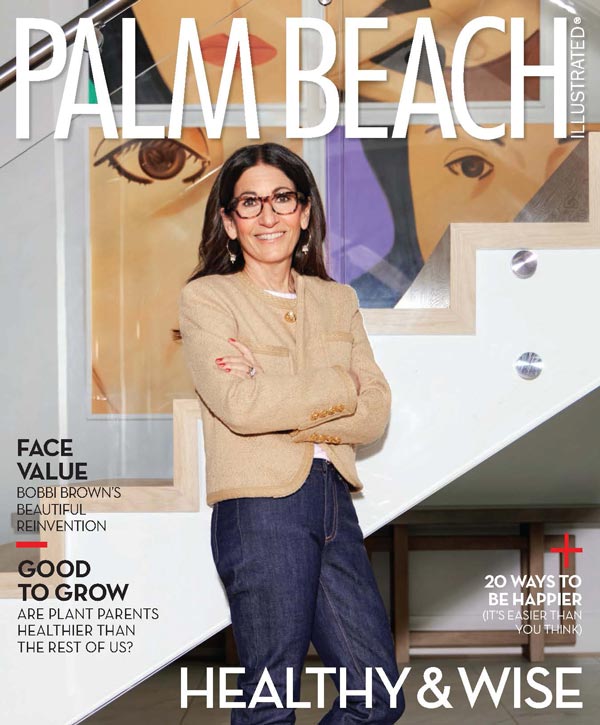From February 20-22, Palm Beach Opera will mount the world premiere of Enemies, A Love Story. Composer Ben Moore wrote the score, which is based on the Isaac Bashevis Singer novel of the same name. Set in New York City in 1948, the opera follows Holocaust survivor Herman Broder as he navigates a new country and a complicated love life. PBI.com spoke with Daniel Biaggi, Palm Beach Opera’s general director, about the opera. 
PBI.com: Why did you decide to mount the world premiere of Enemies, A Love Story?
Biaggi: We decided we would offer it as part of the One Opera in One Hour project at the Harriet Himmel Theater. By then (2013) we had introduced Baroque repertoire, twentieth-century repertoire, American opera, other operas in English in order to introduce this idea that opera doesn’t necessarily mean nineteenth century Italian or French…but we had never had a living composer. So, we talked with Moore to see if he’d be interested, and he said ‘I would love to.’
The audience loved it. We had a Q&A session with the composer and the librettist afterwards and realized there was a great interest on the part of the audience that was there. It’s very melodic music, so it’s the opposite of what people associate with modern pieces. And so, based on the success from there, we decided it would be the right time to take the risk and present it.
Is this the first world premiere you’ve been involved with?
It’s the first world premiere for Palm Beach Opera [and] it’s the first world premiere I’ve been involved in from the producing side. I was involved in world premieres when I was an artist manager in New York; some of our singers were on the other side and learning the music of world premiere performances. So, I know a little bit what it’s like even in terms of the contract negotiations that are slightly different for world premieres than for regular engagements.
Who will be playing the main characters?
Some of them are artists with whom we’ve worked with before, some of them are new. The lead baritone, Herman, who’s really the driving force in all of this in some ways, whose life story it is, is Daniel Okulitch who is a Canadian baritone, who sang Don Giovanni with us a couple years go. He’s a wonderful singer-actor, he’s done a lot of world premieres. He was part of The Fly at Los Angeles Opera. Most recently, he did the operatic version of Brokeback Mountain in Barcelona. So, he’s great with modern music. Then we have Caitlin Lynch, a wonderful soprano who’s coming back; she was a competition winner here several years ago and has had a beautiful career ever since, singing a lot of the leading Mozart ladies. And then two new singers for the leading quartet: Leann Sandel-Pantaleo, mezzo-soprano, and then Danielle Pastin, who will sing Masha, the fiery temptress from the Bronx.
Who did you enlist to develop the creative, behind-the-scenes elements?
The conductor is David Stern, who conducted MacBeth here last season. The director is Sam Helfrich, a wonderful young American director who is making his debut with us. And the designer of the production is Allen Moyer, who’s done a lot of designs both on Broadway as well as on the opera stage.
How is the process of staging a world premiere different from staging and coordinating the artistic elements of any other production?
It’s different in as much as there are no comparative elements and there is really no knowledge, in a sense, about the piece. Casting, for example, you can only base it on reading from the score. So, even in casting, you have to rely on your sense of reading a score to know which voice types fit which character. But, primarily, the planning process is entirely different when it comes to the design of this world premiere. Normally, we rent productions; we would rent a set from another opera company, we would rent a series of costumes either from an opera company or a costume lender and then simply make alterations for the cast here. In this case, since it’s a world premiere, that doesn’t exist yet.
Have you run into any difficulties in terms of staging?
I wouldn’t say difficulties yet, but we’ve certainly had conversation and made certain adjustments along the way. We had, from the beginning, certain conversations with the librettist and the composer to discuss some of the characters, to make sure there’s enough material there for people to feel really sympathetic to these characters onstage. One of the big challenges of the opera is that it’s relatively short; it’s just over two hours but it’s in two acts and the whole opera is probably 24 scenes—you cannot continuously bring in the curtain, right? That would completely interrupt the flow of the drama if we brought in the curtain to change the scenery all the time. So, we have to figure out how to deal with that scenically in terms of the design to have a flowing change from one apartment into the next into the subway into the zoo into Cooney Island.
How does this production fit in with the rest of Palm Beach Opera’s 2014-15 season?
It, in some ways, becomes a bit the focal point in the middle of the season. In this case, we [decided] if we’re going to have this very unknown thing in the middle, we need to surround it with more familiar things. La Bohème (January 16-18) is one of those titles everybody knows, but is always very, very popular. At the end of the season, we will have the comedy The Daughter of the Regiment (March 20-22) in French. We will probably also try something new, for us, to have a mixed form of English dialogue and French singing so that the jokes really are in the language of the audience. And so, we figure we can have a great comedy, feel food at the end.









Facebook Comments